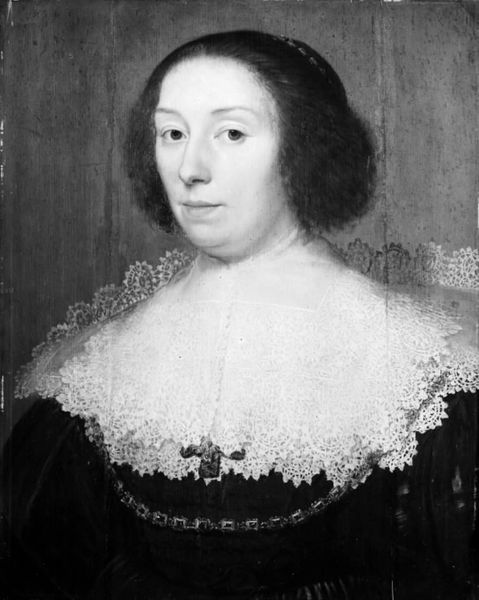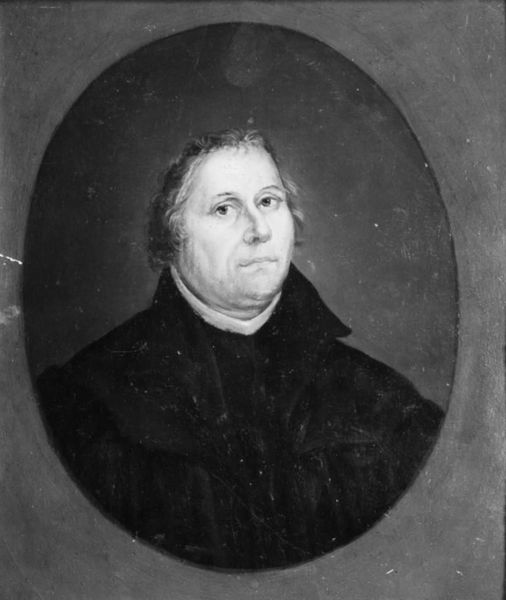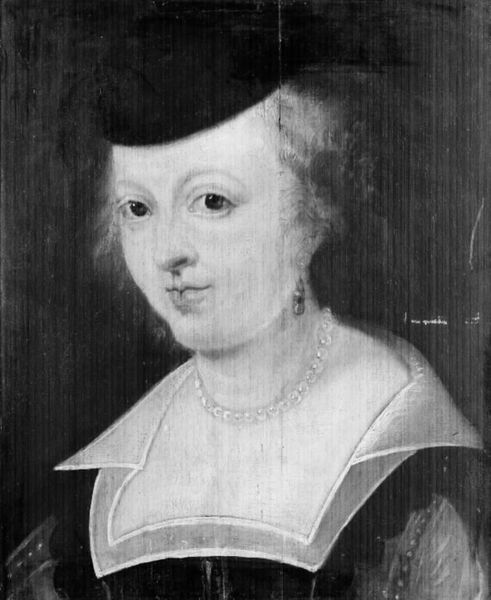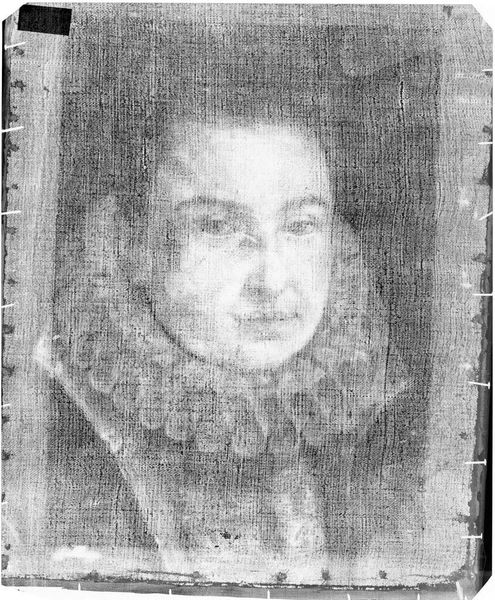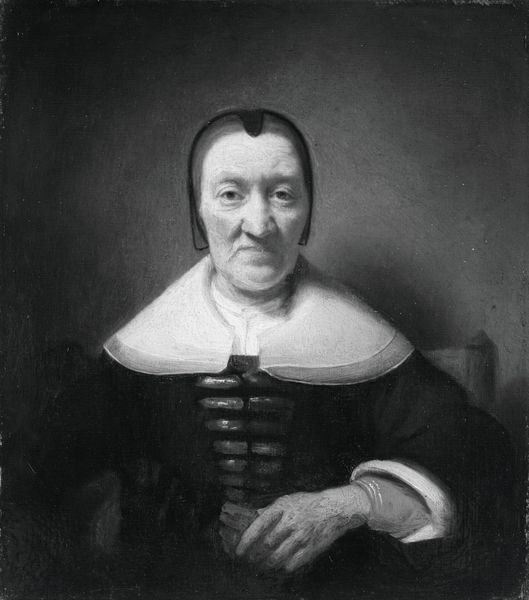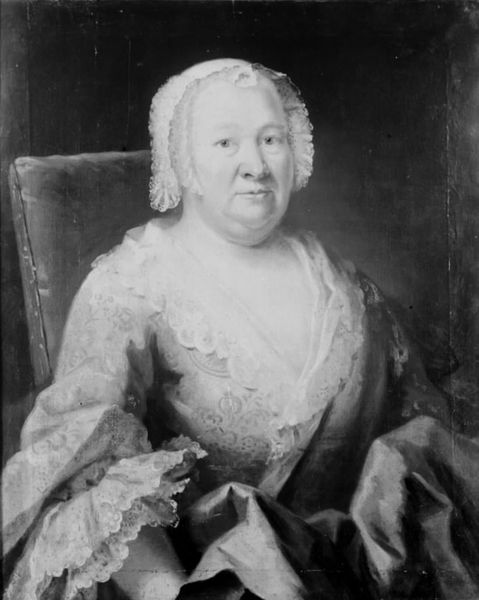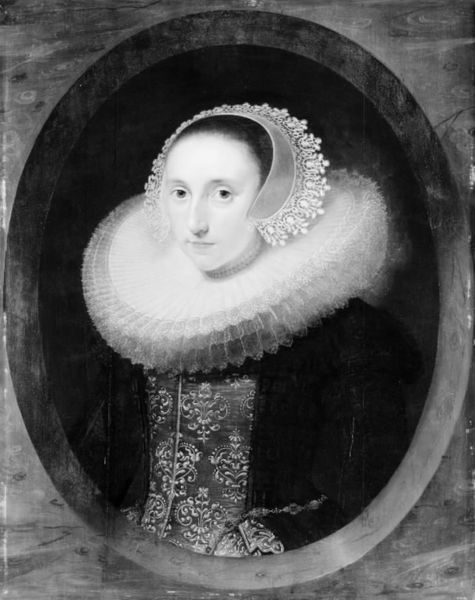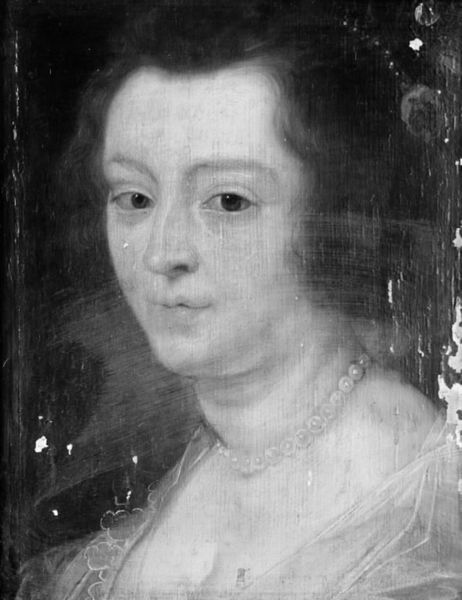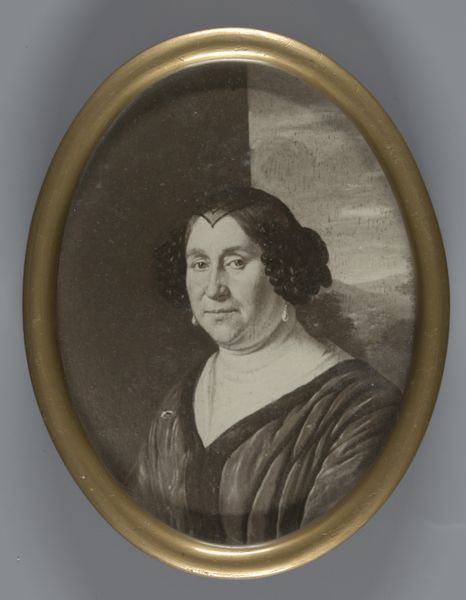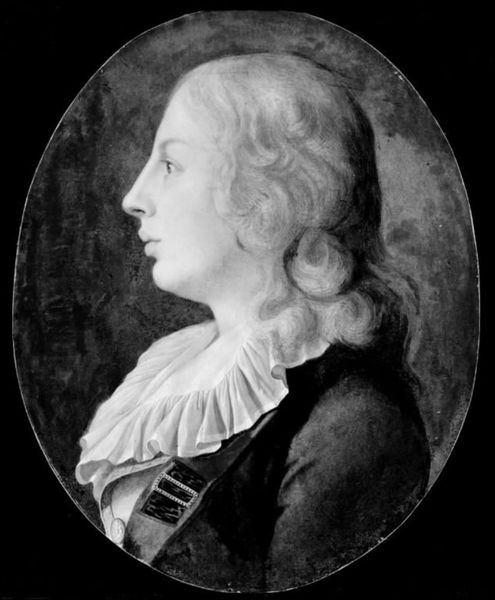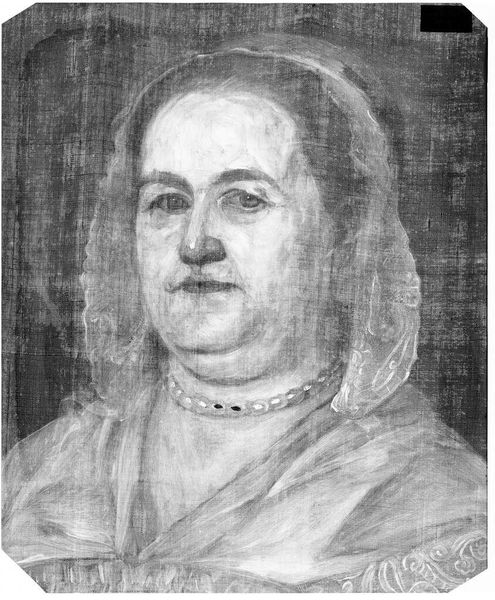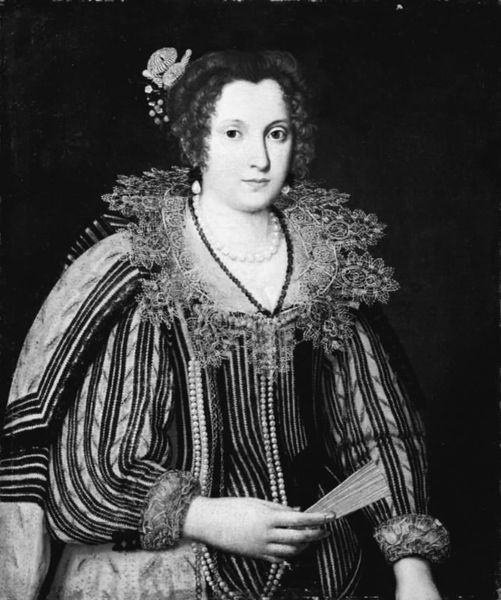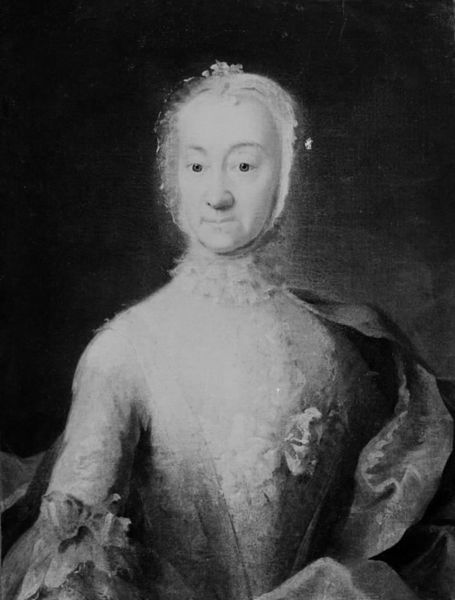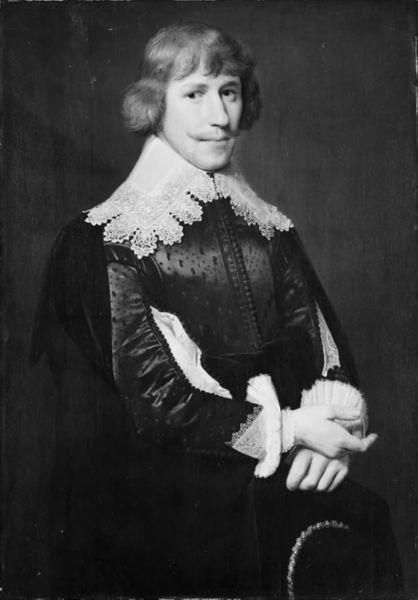
painting, oil-paint, wood
#
portrait
#
baroque
#
painting
#
oil-paint
#
black and white
#
monochrome photography
#
wood
#
monochrome
#
monochrome
Dimensions: 44.5 cm (height) x 31 cm (width) (Netto)
Editor: We're looking at "Portrait of a Lady" by Nicolaes Maes, created sometime between 1649 and 1693, using oil paint on wood. What strikes me most is the sharp contrast between the stark white of her collar and face, and the enveloping darkness around her. What do you see in this piece from a formalist perspective? Curator: The painting presents a compelling study in contrasts, precisely as you observe. Note how Maes uses chiaroscuro not just to define form, but as a compositional element itself. The interplay between light and dark generates a visual rhythm, drawing the eye from the lady’s face, down to her collar, and into the shadows. Editor: So the lack of color actually becomes a defining feature? Curator: Precisely. Restricting the palette accentuates the textural differences within the monochrome scheme. Consider the impasto of the white collar in juxtaposition to the flatter application of paint in the background, it draws attention to the material qualities of the medium. Are you observing how the texture almost gives the image an illusion of movement? Editor: Yes, I see that now! The collar really pops because of that texture. It's interesting how focusing on those elements reveals so much about the artist’s choices. Curator: Indeed. By focusing on these inherent properties of the work – line, shape, form, texture and value – we've uncovered nuances in its visual construction, leading to a deeper aesthetic understanding. It allows a view of the portrait's function aside from pure likeness. Editor: That’s a great point. I'll definitely pay closer attention to composition and material when analyzing art now.
Comments
No comments
Be the first to comment and join the conversation on the ultimate creative platform.
